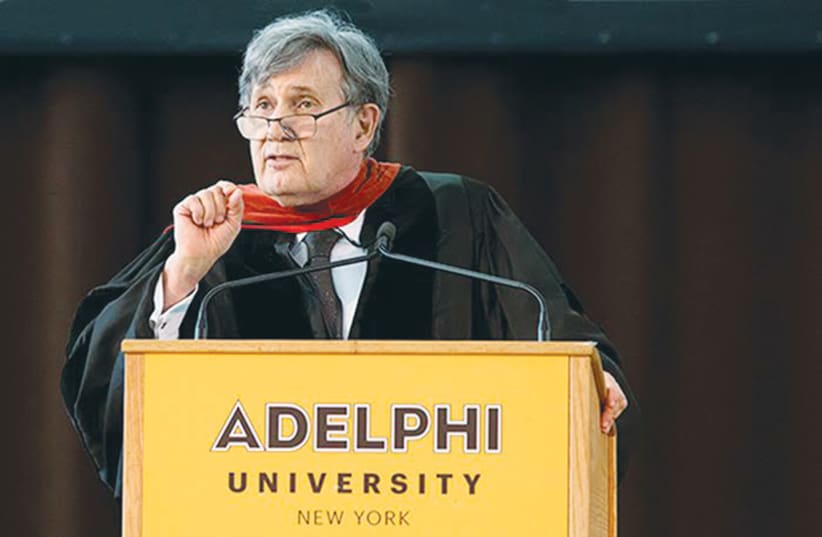The first-ever University Presidents and Chancellors Mission from the United States and Canada to the annual March of the Living arrived in Poland this week at a pivotal moment, amidst the unprecedented surge of antisemitism across university campuses across America, and around the world
This landmark mission signals a collective determination to confront the rising tide of hate and discrimination. As university leaders, we are not mere observers of history but active participants in shaping the future. Our journey through Poland, guided by the solemn echoes of the Holocaust, serves as a poignant reminder of the consequences of unchecked prejudice and intolerance.
In reflecting upon the history of the Holocaust, we are compelled to confront uncomfortable truths about the complicity of higher education institutions in perpetuating bigotry and exclusion.
The chilling fact remains that educated minds, adorned with academic accolades, were among the architects of genocide – a reality that demands introspection and accountability. Academic institutions were used to directly implement antisemitism across society. In 1931, at the University of Warsaw, which we visit, 300 Jewish students applied for admission but only 22 were accepted, or just over 7%. This in a city where approximately 30% of the population was Jewish.
Tellingly, at the start of the 20th century, perhaps Europe’s most educated and advanced country in terms of higher education was none other than Germany – the prime initiator and implementer of the Holocaust, the nation that singled out for eradication an entire people – the Jewish People – in the most horrifying manner. And it very nearly succeeded.
At the infamous Wannsee Conference, held on January 20, 1942, in less than two hours, 15 senior German government officials formalized the plan for Hitler’s Final Solution: the deportation and murder of millions of Jews in Nazi-occupied Europe. Two-thirds of the participants at the Wannsee Conference had attended university and over half had been awarded doctorates. Indeed, higher education was no guarantee of a resulting higher moral standard – quite the inverse appeared true in the Holocaust era.
Link between antisemitism and the road to Aschwitz
That is why it is so important that the leaders of higher education today bear witness to the atrocities that took place then in order to learn lessons about how to prevent them taking place again.
As we travel through Poland and see the results of Nazi Germany’s genocidal policies towards the Jews, we will see the direct link between antisemitism and the road to Auschwitz. We hope that through this mission, which is planned to be expanded in future years, university presidents will become allies in the fight against antisemitism – because we know all too well the potentially devastating outcomes of ignoring the issue.
Yehuda Bauer, one of the world’s leading Holocaust scholars, once said: “The only thing Jews were guilty of during the Holocaust was failing to imagine the unimaginable.”
Perhaps much of the world was guilty of the same. But today, none of us have that excuse. We have seen the lowest depths humanity is capable of plumbing – and we dare not tread that treacherous road again.
By raising our awareness about antisemitism, we can instill a deep understanding of the evils of any kind of prejudice, intolerance, and hate. We must therefore commit ourselves to these twin goals – the fight against antisemitism, and the fight against all forms of discrimination and marginalization.
For, as Dr. Martin Luther King, Jr. one of the most extraordinary figures in the fight for human rights in the last century, said: “Injustice anywhere is a threat to justice everywhere. We are caught in an inescapable network of mutuality, tied in a single garment of destiny. Whatever affects one directly, affects all indirectly.”
The writer is vice chairman of the International March of the Living and associate professor at Adelphi University.

